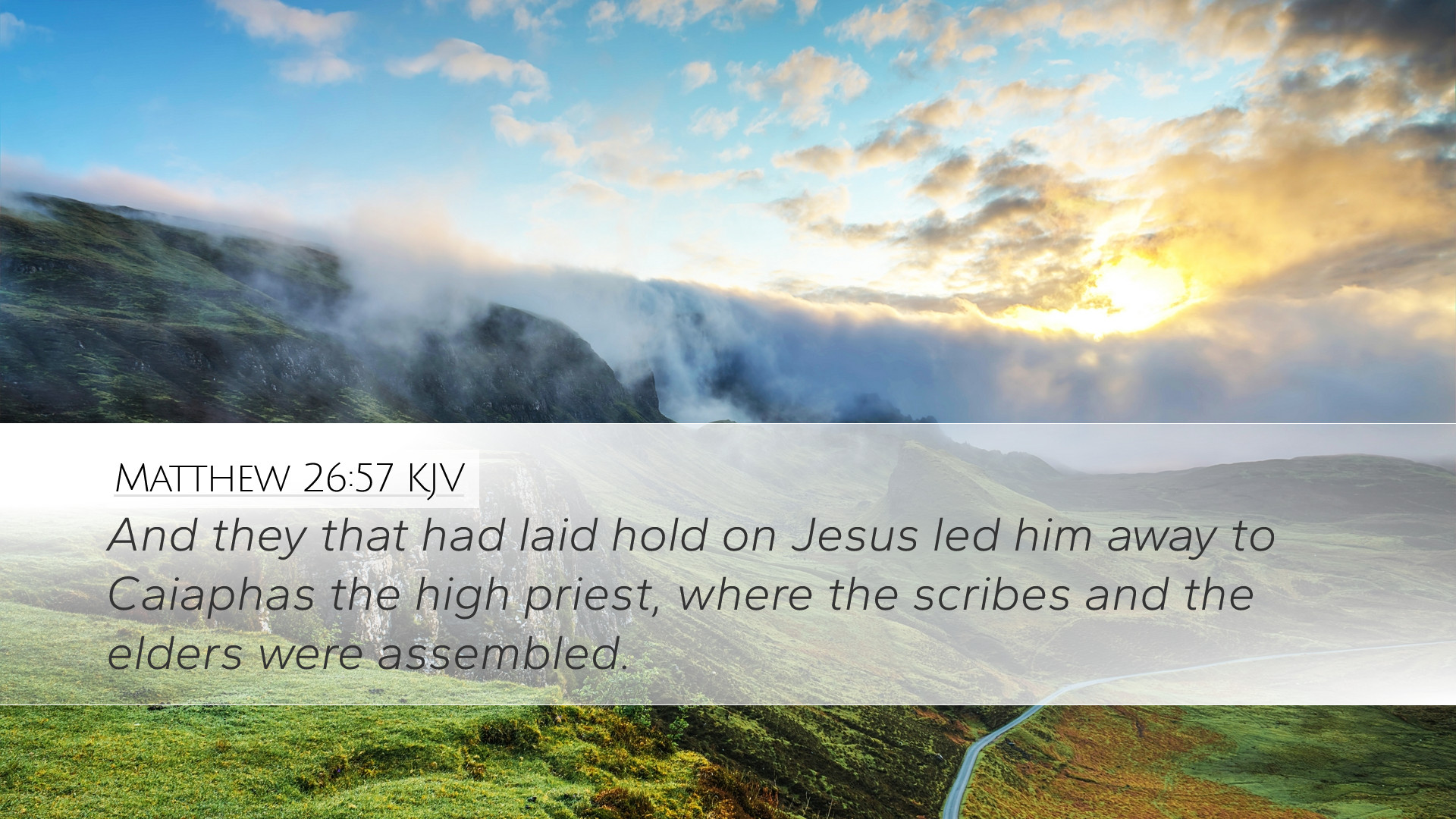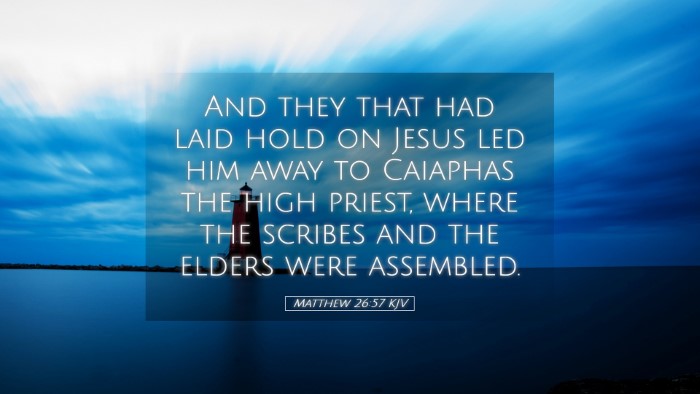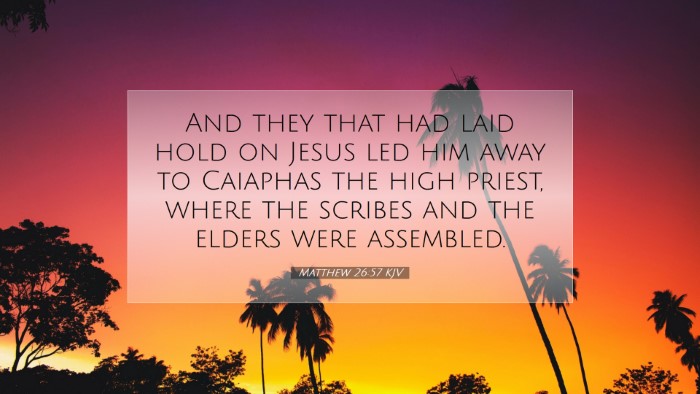Commentary on Matthew 26:57
Verse Summary: "And they that had laid hold on Jesus led him away to Caiaphas the high priest, where the scribes and the elders were assembled."
Introduction
This significant verse marks a pivotal moment in the narrative of the Passion of Christ, detailing the initial steps of Jesus’ trial before the religious authorities. It serves as a prelude to the proceedings that will ultimately lead to the crucifixion.
Contextual Analysis
In this passage, several contextual elements are worthy of exploration:
- Caiaphas the High Priest: Caiaphas was a pivotal figure in the Sanhedrin and played a crucial role in the events leading up to the crucifixion of Jesus. His position reflects the complicated interplay between religious duty and political expediency.
- The Scribes and Elders: These groups represent the religious leadership of Jerusale, displaying a united front against Jesus. Their presence indicates a calculated orchestration of the trial process.
- Significance of Location: The proceedings occurred in Caiaphas’s residence, symbolizing the clandestine and unjust nature of the trial.
Commentary Insights
1. Matthew Henry's Commentary
Matthew Henry asserts that the capture of Jesus was the culmination of deliberate plots against Him. His commentary emphasizes that this event underscores the betrayal and abandonment experienced by Christ, who was led away by those He came to save. Henry reflects on the psychological and spiritual implications of this act, exploring how it foreshadows the isolation and suffering Jesus will ultimately endure.
2. Albert Barnes' Notes on the Bible
Albert Barnes highlights the legal flaws in the trial process presented in this verse. He points out that the assembly of the Sanhedrin late at night and the absence of formal charges against Jesus were highly irregular. Barnes argues that the actions of the scribes and elders were not merely a culmination of political machinations, but also stemmed from deep-seated fear of His influence over the people.
3. Adam Clarke's Commentary
Adam Clarke delves into the implications of this verse, noting that the act of leading Jesus to Caiaphas signifies a betrayal rather than mere imprisonment. He observes the stark contrast between the authority of the high priest and the innocence of Christ, labeling this event as a critical misjudgment by the religious leaders. Clarke also emphasizes the fulfillment of prophecy in this event, suggesting that it is part of a divine plan unfolding.
Theological Reflections
The event of Jesus being led away can be seen through several theological lenses:
- Fulfillment of Scriptural Prophecy: This moment can be understood as the fulfillment of Old Testament prophecies concerning the Messiah’s suffering, thus deepening the Christian understanding of the purpose of Christ’s coming.
- The Nature of Authority: The narrative exposes a critical examination of religious authority. The actions of Caiaphas and the elders raise ethical questions about the use of power and the implications of turning judicial proceedings into instruments of personal vendetta.
- Christ’s Mission: Leading Jesus to trial reflects the depth of His sacrificial mission. The injustice of His treatment lays the groundwork for the profound themes of grace and redemption that permeate the Gospel.
Conclusion
In summary, Matthew 26:57 sets the stage for the events that follow in the Passion narrative. It invites pastors, students, theologians, and scholars to reflect on the grave injustices committed in the face of divine truth. The insights from various public domain commentaries serve to enrich understanding of this critical moment, challenging readers to grapple with the theological ramifications of Jesus’ path to crucifixion. The unfolding drama speaks not just of historical events but also of spiritual truths relevant to believers today.


